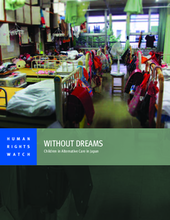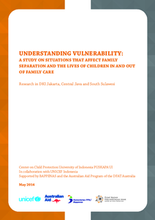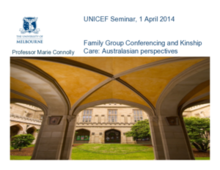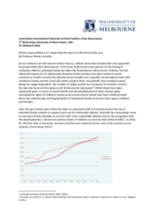Displaying 1861 - 1870 of 2221
This report by Human Rights Watch examines Japan’s alternative care system for children. It describes its organization and processes, presents current data on the use of different forms of alternative care and highlights the problems found in the institutionalization of most children (including infants), as well as abuses that take place in the system.
This review takes a three-pronged approach to showing why the dearth of sociological research focused on children in foster care is problematic.
This report presents analysis and key findings from a study aimed at fully understanding the situations of children in Indonesia that may lead to family separation.
This article provides examples from the Christian Bible to suggest that Christianity offers many principles and mandates that promote Christians to protect and nurture children.
This article provides an overview of the current situation in the out-of-home care in Norway and Sweden. Development in later years is described and discussed, including the trends towards privatization of the welfare system in both countries and the role of private, commercial actors within the care sector including out-of-home care for children and young people.
This webinar presentation by Professor Marie Connolly of the University of Melbourne introduces the history and background of Family Group Conference (FGC) in New Zealand and Australia and discusses the influence of FGC on the development of formal or statutory kinship care in the region.
In this presentation Professor Connolly reviews recent trends in the use of kinship care in Australia and discusses what this shift means in the context of the ‘residual’ model of child protection used in the country.
This article reviews a new book by Charles A. Nelson, Nathan A. Fox and Charles H. Zeanah who conducted seminal studies in Romania on children who were institutionalised, comparing their developmental and well-being outcomes to children who were placed in foster care or adoptive families.
This paper discusses participatory research with young people who are leaving public care in Finland to begin independent lives.
Infant Mental Health Journal has published an important Special Issue on Global Research, Practice, and Policy Issues in the Care of Infants and Young Children at Risk. In this study the authors assessed internalizing disorders, externalizing disorders, and attention deficit hyperactivity disorder (ADHD) in 54-month-old children living with foster families in Bucharest, Romania.




